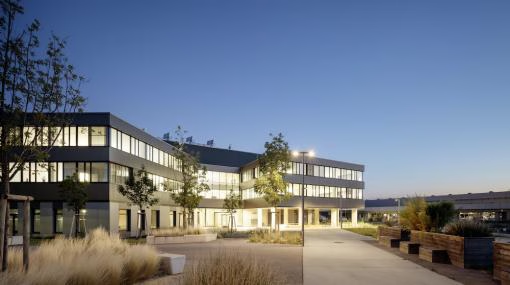Charlotte Fresenius Private University Vienna, which specializes in sustainability, commented on the plans of the new federal government.

The academic institution of the multinational Carl Remigius Fresenius Education Group, the first European university to specialize in studies with a clear focus on sustainability, recognizes the democratic and politically pragmatic consensus. Martin Kreeb, founding rector of the University of Sustainability, welcomes the approach of the People's Party, the Social Democrats, and the NEOS (New Socialists) to achieve profitability through green ideas. However, the government program remains largely imprecise, although the conceptual direction of strengthening the location and upholding sustainability goals is plausible.
Research as an engine of innovation
The intensification of cooperation between universities, technical colleges and industry to accelerate technology transfer is viewed positively.
"The promotion of future technologies such as artificial intelligence and renewable energies is essential," says Kreeb. "Research funding must be secured in the long term. Research and education must not be seen solely as a government responsibility; they need private, inclusive educational and scientific initiatives to complement them in order to advance Austria's international competitiveness: Leading companies, small and medium-sized enterprises, as well as university spin-offs and start-ups, make a relevant contribution to research and development."
The innovative power of the economy must be better utilized against the backdrop of economic challenges and the climate crisis.
"Targeted incentives for private companies are needed to anchor research and development even more firmly in Austria. Clear concepts are still pending in this regard," explains Kreeb.
Ambitious sustainability targets with economic added value
The government's commitment to climate targets and its commitment to the 17 UN Sustainable Development Goals is an important signal. Investments in renewable energies, improved energy efficiency, and measures to reduce CO2 emissions will contribute significantly to achieving the goal of climate neutrality by 2040. The increased use of technologies promotes the multidimensional transformation of the industrial and business location and creates sustainable, future-oriented jobs. This includes, for example, the further development of effective CO2 storage technologies, in which domestic companies are leading the way. The resulting negative emissions can contribute to climate protection. The announced close cooperation with the scientific community to develop adaptation strategies and protective measures against the effects of climate change will create added value and security for the entire country.
The commitment to the circular economy contributes to sustainable and competitive economic development and securing Austria's position as a business location. Digital technologies and solutions for the circular economy, such as digital twins, digital product passports, and digital commodity exchanges, are fertile ground for innovation.
“If the goals set for achieving the circular economy are achieved, Austria has the potential to become an innovation engine and a European pioneer,” said Kreeb, assessing the government’s plans.
Education: Skills transfer improves access to higher education
The teaching of digital skills across all educational paths and age groups is relevant both economically and democratically to create a responsible and critical society. Equally important is the digital inclusion of all stakeholders in order to develop new digital business models in Austria and promote sustainable innovation. The focus on artificial intelligence is an incentive to engage with new business models early and with an open mind. Strengthening school autonomy is welcome from an academic perspective, as it facilitates entry into subsequent university studies. Likewise, promoting giftedness and talent, as well as cooperation with universities at the upper secondary level, can make university entry more attractive for future talents as a location for science and business.
University of Sustainability: About the Charlotte Fresenius Private University
The Charlotte Fresenius Private University is a state-recognized private university based in Vienna and the first private university in Austria with a clear focus on sustainability. The university is part of the Carl Remigius Fresenius Education Group, one of the largest private and independent educational groups in the German-speaking world. The University of Sustainability cooperates internationally with institutions such as Arizona State University. Further information is available at uni-sustainability.at.
